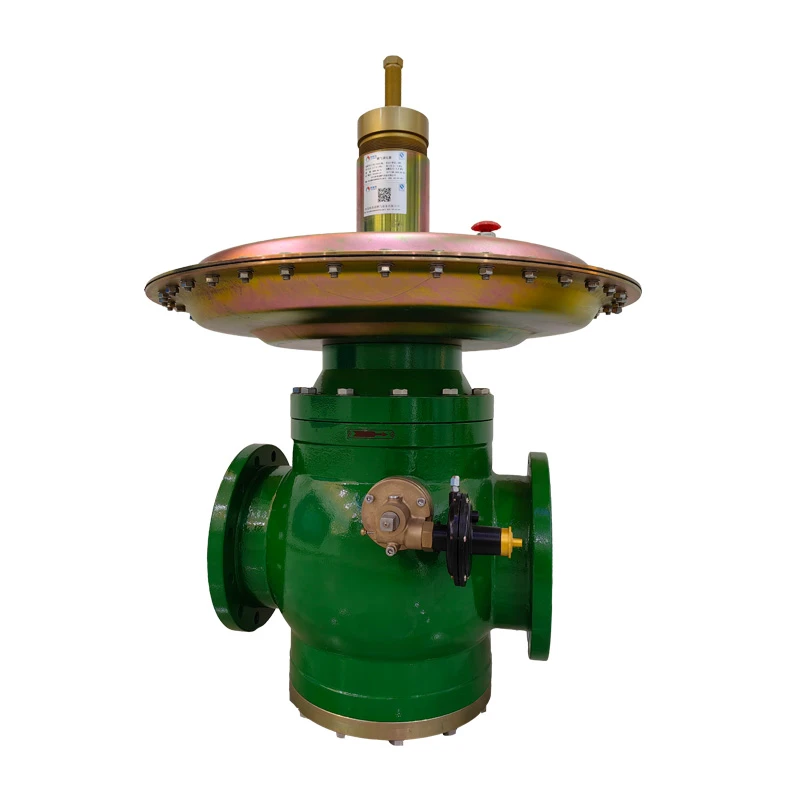
Nov . 14, 2024 09:10
Back to list
natural gas heat exchanger
Natural Gas Heat Exchangers Essential Components for Energy Efficiency
In today’s world, where energy consumption and efficiency are paramount, natural gas heat exchangers play a crucial role in various industrial and residential applications. These devices facilitate the transfer of heat between two or more fluids—typically between a gas and a liquid or gas and gas—without the fluids mixing. As a result, they help maximize heat recovery and minimize energy waste, ultimately contributing to lower operational costs and reduced environmental impact.
Understanding the Basics
At its core, a heat exchanger is designed to transfer thermal energy from one medium to another while maintaining the integrity of both. In the context of natural gas, heat exchangers are especially vital in processes such as power generation, heating systems, and industrial manufacturing. Various types of heat exchangers can be employed, including shell and tube, plate, and air-cooled designs, each suited to specific applications based on temperature, pressure, and volume requirements.
Natural gas, a cleaner fossil fuel compared to coal and oil, is increasingly used in power plants and heating systems. As industries strive for sustainability, incorporating natural gas heat exchangers not only enhances energy efficiency but also aligns with regulatory frameworks advocating for reduced emissions.
Applications and Benefits
1. Power Generation Natural gas is a primary fuel for many power plants, and heat exchangers are integral to the combined cycle gas turbine (CCGT) systems. In these setups, hot exhaust gases from the turbines are used to heat water, creating steam to drive additional turbines for extra power generation. This process significantly increases the overall efficiency of power plants, often exceeding 60% efficiency compared to traditional systems.
2. Heating Systems In residential and commercial heating applications, natural gas heat exchangers are found in furnaces, boilers, and water heaters. By transferring heat from the combustion of natural gas to the water or air used for heating spaces, these systems ensure a steady supply of warmth even in the coldest months. Moreover, modern condensing boilers utilize advanced heat exchanger technology to recover latent heat from exhaust gases, further enhancing efficiency.
natural gas heat exchanger

3. Industrial Processes Many industrial processes rely on controlled heating and cooling, making heat exchangers invaluable. In chemical manufacturing, for example, heat exchangers are used to regulate temperatures during reactions, ensure product quality, and recover heat for reuse in other processes.
Energy Efficiency and Environmental Sustainability
The growing focus on energy efficiency aligns with global trends towards sustainability. Utilizing natural gas heat exchangers not only improves efficiency in heating and power generation but also contributes to a reduction in greenhouse gas emissions. Natural gas has a lower carbon content compared to coal and oil, making it a more eco-friendly choice. Further, by maximizing heat recovery, these systems help lower the demand for raw energy inputs, which can lead to decreased environmental degradation associated with fossil fuel extraction.
Challenges and Innovations
While natural gas heat exchangers offer numerous benefits, they are not free from challenges. Fouling, where unwanted materials accumulate on heat transfer surfaces, can significantly reduce efficiency. Continuous technological advancements focus on materials and designs that minimize fouling and enhance heat transfer efficiency.
Moreover, the integration of advanced monitoring systems powered by the Internet of Things (IoT) allows for real-time assessment of heat exchanger performance. These smart systems can predict maintenance needs, optimize operation based on demand, and aid in the overall management of energy resources.
Conclusion
Natural gas heat exchangers are pivotal in the quest for energy efficiency and sustainability. By effectively transferring heat in various applications, they not only help industries and homes reduce energy costs but also contribute to a cleaner environment. As technology continues to advance, we can expect even greater innovations in heat exchanger design and efficiency, reinforcing the role of natural gas as a key player in our energy landscape for years to come.
Latest news
-
Safety Valve Spring-Loaded Design Overpressure ProtectionNewsJul.25,2025
-
Precision Voltage Regulator AC5 Accuracy Grade PerformanceNewsJul.25,2025
-
Natural Gas Pressure Regulating Skid Industrial Pipeline ApplicationsNewsJul.25,2025
-
Natural Gas Filter Stainless Steel Mesh Element DesignNewsJul.25,2025
-
Gas Pressure Regulator Valve Direct-Acting Spring-Loaded DesignNewsJul.25,2025
-
Decompression Equipment Multi-Stage Heat Exchange System DesignNewsJul.25,2025

